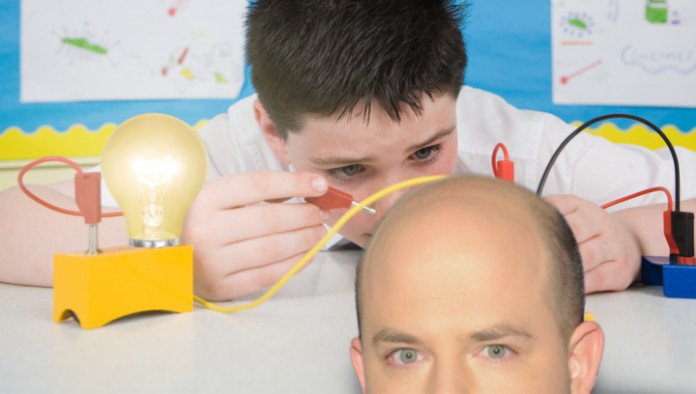When you distract yourself from pain, you actually hurt less, a new study suggests.
Study participants who were subjected to slight pain on their forearms reported less discomfort when they were asked to perform a distracting mental test as the pain was delivered.
Moreover, when participants were given a placebo “pain relief” cream, and distracted at the same time, their pain was even more reduced.
“Both placebo and distraction are effective mechanisms for reducing pain. You can combine them and you don’t lose anything,” said study researcher Jason Buhle, who conducted the research as part of his doctoral dissertation from Columbia University.
The work sheds light on how the placebo effect may work, Buhle said. Previously, it had been thought that the placebo effect was the result of some — perhaps unconscious — mental effort, but the new results suggest that it relies on a separate mechanism from distraction.
The study was published Jan. 18 in the journal Psychological Science.
Hey, look over there!
Distraction has been found to reduce pain in the past, Buhle said, but the new study showed that those benefits could come in addition to those of a placebo.
The study involved 33 participants. Researchers attached a heating device to their forearms, which delivered some pain.
As a distraction, the participants took what is called a “3-back” test, where they were given a series of letters, and had to say whether a letter was the same as the letter that had been listed three earlier.
In one experiment, participants were also given a cream to put on their arms, and told it was a pain reliever. In another, they were given the same cream, but from a different container, and were told it was simply for the workings of the pain-administering device.
What the researchers found was that the placebo cream and the distracting test both had lessened the participants’ pain, but distraction made for a much more effective pain reliever.
“It’s clear that [distraction] is very powerful, and it was not uncommon for someone with a distraction condition to say, ‘Did you really turn it on?'” Buhle said. “Sometimes they won’t even feel the pain… It is striking to see.”
By contrast, he said, “Nobody says that after the placebo.”
Moreover, the use of a placebo did not appear to change how well participants performed on the 3-back test, which would have indicated some thought being devoted to the placebo itself.
Humorous distractions
Calling the findings “intriguing,” Dr. Ian Cook, director of the UCLA Depression Research Clinic Program, said the study helps point to a new path for non-drug treatments for pain.
It would be interesting to see the effect of distraction on other conditions where the placebo effect has shown an impact, such as anxiety, Cook said.
In the past, said Cook, distraction has proven to be useful, particularly with children, as a means of reducing pain. Mostly, he said, it has been used in the form of humor, influenced by a 1976 article by Norman Cousins about the healing power of a positive attitude, published in the New England Journal of Medicine.
But distraction goes beyond humor.
“It’s not clear whether it has to be something that’s humorous, or whether it can be anything else that engages attention and distracts form the painful experience,” said Cook.
The use of placebos in medicine has been controversial, in part because it relies on deceiving patients to be effective. Cook said it’s clear it is used in some cases.
“Many physicians do, evidently…they’ll prescribe an antibiotic for a viral illness, even though that’s not likely to have any biological benefit at all,” he said.
Cook, who specializes in depression, said he would not prescribe it for his patients.
“It doesn’t seem to be of great benefit there,” he said. “Once the person learns they’ve been taking a placebo, once they learn they’ve been deceived, the benefits tend to dissipate very rapidly.”
Pass it on: Distraction may be an effective way to combat pain.
This story was provided by MyHealthNewsDaily, a sister site to LiveScience. Follow MyHealthNewsDaily on Twitter @MyHealth_MHND. Find us on Facebook.
- Hypersex to Hoarding: 7 New Psychological Disorders
- 11 Interesting Effects of Oxytocin
- 11 Tips to Lower Stress
Related posts:
Views: 0
 RSS Feed
RSS Feed

















 February 8th, 2012
February 8th, 2012  FAKE NEWS for the Zionist agenda
FAKE NEWS for the Zionist agenda 

 Posted in
Posted in  Tags:
Tags: 
















